“President-elect Trump has shown deep and great understanding of what is taking place in the region as a whole and what is taking place in Egypt…That is why I am looking forward, and I am expecting more support and more reinforcement of our bilateral relations”.
These were the words of Egyptian President Abdel Fattah Al-Sisi right before Donald Trump won the United States’ presidency.
Millions marched around the world to protest the inauguration of the racist, misogynistic, bigoted notorious Islamophobe Donald Trump. Chaos ensued after some of his executive orders on the first few days of his administration, especially the one banning citizens of seven predominantly Muslim countries from entering the U.S. with no clear mechanism on how to execute it. The order effectively voided all the valid visas and green cards for the citizens of these countries, and those unfortunate enough to have been born in them, even if they hold Western passports. This created a huge humanitarian crisis, separated families, and denied access to people in need of medical treatment, as well as students and refugees, among numerous others.
And while most of the world seems to be in shock and disgust over the actions of Trump, how is the reception of the American president in Egypt and the Middle East?
Officially, the Egyptian President was the first foreign leader to congratulate the man who feels the needs to constantly squint to look authoritative for his election; the pro Egyptian government media praised Trump before the election and took a clear stance against Hillary Clinton. On the governmental front, the American president’s election was definitely celebrated.
But what about the people, what do the Egyptians think about Trump’s election?
Most of the Egyptians I spoke to didn’t care much for Trump’s election. They believe that it wouldn’t affect them either way. Yet it was apparent that the more pro Sisi the person was, the more they are inclined to believe that Trump will be a good U.S. president, drawing parallels between both.
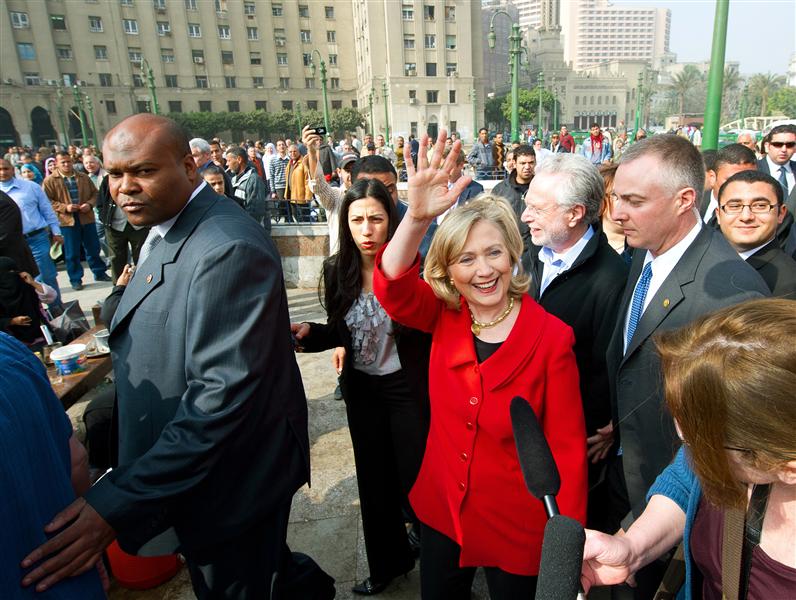
One of the Egyptians I spoke to was Mohamed Hafez, a 40-year-old linguist who said that both Trump and Clinton are alike.
“I don’t see a difference between Hillary, Trump, Bush senior or junior or others; they are all just cogs in a large machine, some are just clearer about their ill intent,” said Mohamed.
Hafez believes it’s all the same; that they claimed that Hillary Clinton supports the Muslim Brotherhood. Therefore Clinton will pose a risk to the security of Egypt, which really isn’t that different from Trump declaring his war on “terrorism”, and describing all Muslims as its source and that they need to be fought and banned from entering the U.S.
“In both cases, Hilary and Trump are alike, supporting a faction on the expense of the other, and weakening Egypt and its unity,” explained Mohamed.
And while most Egyptians remain indifferent to Trump’s presidency, some are deeply concerned with the change, even turning their life upside down because of it. Habiba Montasser, a 26-year-old social activist, discussed how Trump’s election changed her future plans.
Habiba used to consider the U.S. one of the best countries that offered acceptance of the other and embraced diversity, different races, nationalities, religions and backgrounds. “This change threatens all of us, as the U.S. is one of the biggest countries in the world, the actions of the U.S. president now green lights and normalizes racism and bigotry for other countries as well,” said Habiba.
On the personal front, this changes Habiba’s future plans, as she was planning to apply for her postgraduate studies in the U.S. “It was the country I felt most comfortable in when I visited it several times. My uncle and some good friends also reside in the U.S. Now after everything that happened I am seriously reconsidering it,” she added.
Habiba is also deeply concerned about the safety of her family and friends there: “I feel that Trump’s policies encourage racists and bigots to feel that they can act on their racism with impunity.”
People connected to both countries provide an interesting perspective, as they closely follow what’s happening in the U.S. while seeing the people’s reactions in Egypt.
Amira Elmallah, a 28-year-old American Muslim with Egyptian roots who was born and raised in the U.S. and currently resides in Cairo, shared some of the reactions of the people she met in Egypt.
“During the elections I heard a lot of criticism of Hillary from Egyptians, people that felt that she had a hand in what one person called ‘destroying the Middle East’,” said Amira.
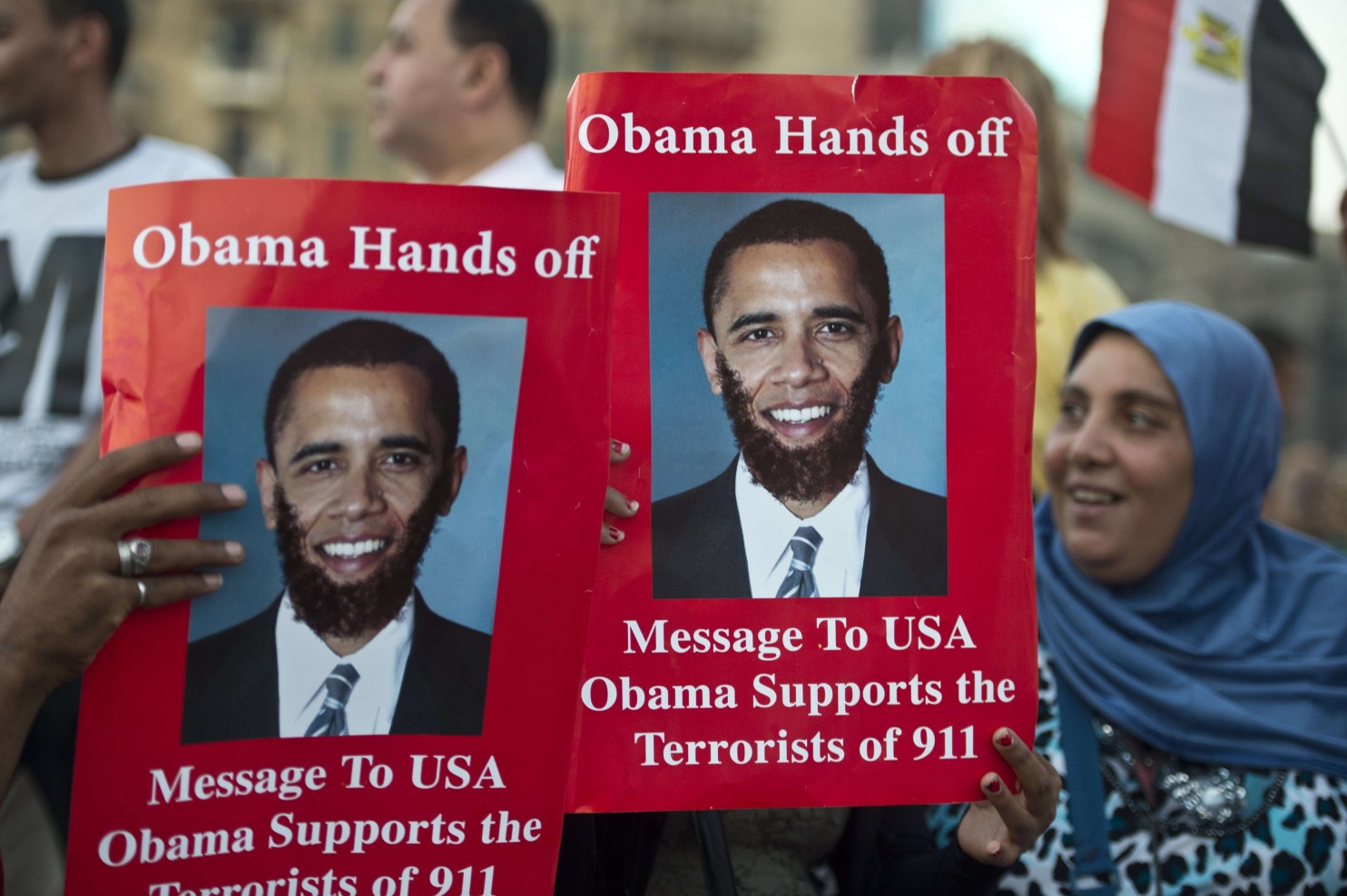
Amira felt a lot of anger towards Hillary, whereas no one held such anger towards Trump. She said Egyptians cited things like that Hillary had a part in the war on Iraq or that she had sat down with the Muslim Brotherhood and that she supported them. Also, she got a sense of disillusionment with Obama from the people.
“He came here to Cairo with his fake cultural sensitivity, addressing us with Alsalam Alaykom, and then “look what he did!” kind of sentiment,” said Amira about perceptions towards Obama.
People felt betrayed and deceived by Obama’s government, and Hillary was a part of it, believes Elmallah. Realizing that because Trump has no political history, this actually and ironically works out in his favor in terms of public opinion: “No one has anything to criticize him for. In the U.S. and in Egypt, people felt that he was somehow cleaner than Hillary …more honest, despite wide documentation of his compulsive lying.”
Amira said that one person claimed that Trump was better than Obama because at least he is honest about his sentiments towards Muslims, “[w]hereas Obama pretended to be a friend to Muslims but his actions to bomb predominantly Muslim countries are clear attacks”. This left the people feeling a general sense of betrayal by the Obama government, and lead them to have such low expectations for U.S. policy towards Egypt and the Middle East in general.
In addition to that, there is a degree of gloating ‘Shamata’: people looking at the chaos Trump is causing and feeling like Americans almost deserve it, for all the trouble America has caused.
Amira also felt that others compare Trump to Sisi, especially the people with a younger pro-January 25th orientation: they exhibit no “Shamata” or emotional reaction at all, “only a little bit of incredulity that even in the U.S. people would support a mindless manipulative dictator”.
You’d think that with such a blatant and publicized hate towards Muslims, that tensions would rise between Muslim countries and the U.S., but in reality quite a few of the Muslim countries had warm and even encouraging reactions to Trump’s racist policies.
The UAE Foreign Minister said the U.S. was well within its rights to take what he claimed was a “sovereign decision” concerning immigration. Voicing faith in the administration’s assurances that the move was not based on religion, the Foreign Minister said “[s]ome of these countries that were on this list are countries that face structural problems”.
“These countries should try to solve these issues… and these circumstances before trying to solve this issue with the United States,” said the Foreign Minister.
Those same racist policies have even been adopted by some Muslim countries. Kuwait, for example, has restricted visas for Syrians, Pakistanis, Iraqis, Afghanis and Iranians.
Cockalorum
Noun [kɒkəˈlɔːrəm]
A self-important little man.
Our world seems to be increasingly dominated by cockalorums that feel the need to exercise their power through the persecution of the vulnerable. Racism has always existed in our world. Most of the time people, especially politicians, have felt the need to mask it, but now not only is it highly visible: it gets politicians elected into office. This sends the message that it’s okay to be racist, a xenophobe, and that the other is by default evil, inferior, should be cast out for our safety and well-being. It also distracts people from the real issues through evoking and playing on fear and hatred.
But Egyptians, as with most of the people in Arab and Islamic countries, don’t feel that the American or Western policies in general have changed that much; they’ve just became more visible.
Marina, 25, old cynically said that ultimately Trump winning changes nothing for everyday Egyptians.
“Trump winning or losing is not going to change anything, it’s not going to feed the starving masses in Egypt, won’t help the youth in building a better future, it won’t make a difference here, it’s their game not ours,” said Marina. “Those stuck in between the wheels of the grinder don’t care which way it turns.”
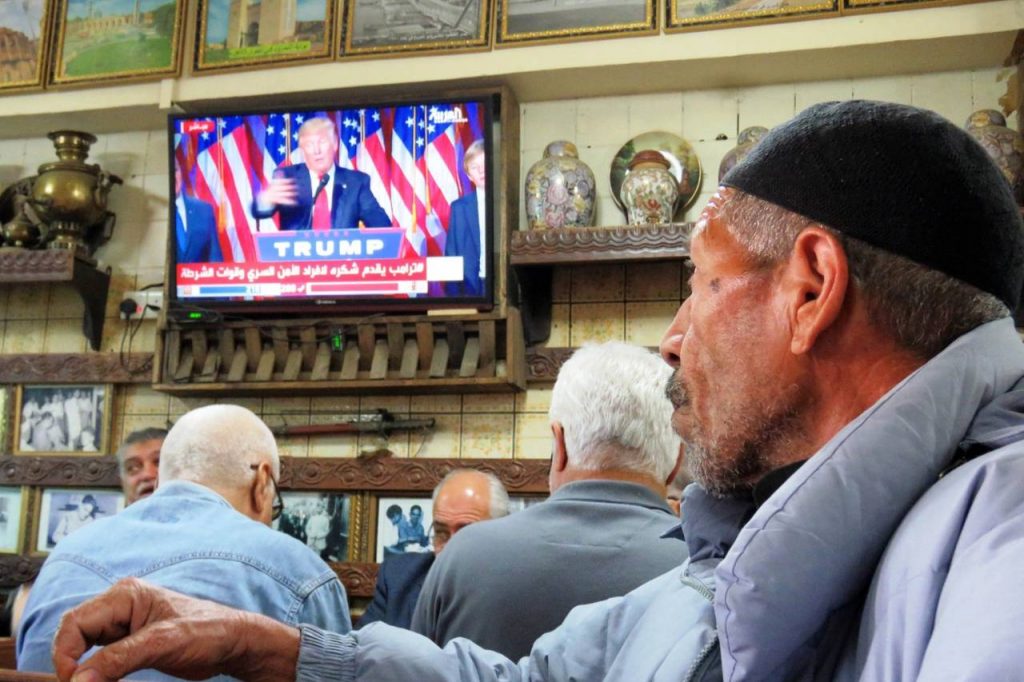



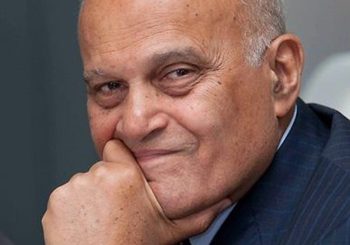

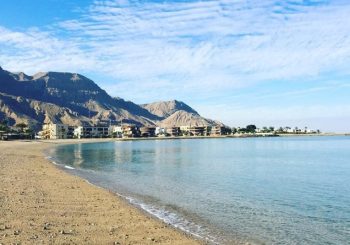
Comments (0)